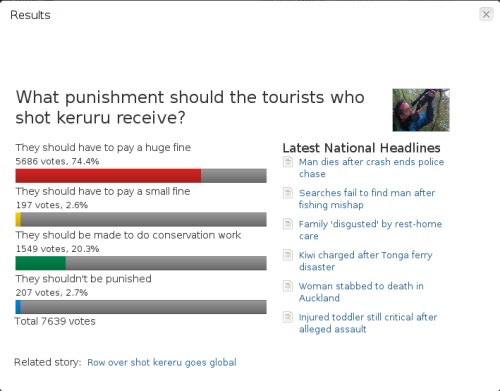One of the ironies of the perennial Middle Eastern conflict is how the Western democratic Left shifted from a pro-Israeli position (held until the 1970s), to an anti-Israeli position during the last three decades. Much of this is Israel’s own fault, as its continued expansion into, and occupation of Palestinian lands in violation of the 1967 and 1973 war settlements, to say nothing of the Camp David accords, has re-cast its image to that of an imperialist oppressor rather than besieged liberal democracy surrounded by a sea of hostile Arab despots and medieval theocratic zealots.
Â
Yet Israel remains the sole functioning democracy in Middle East (Turkey is further afield and excluded from this analysis for argument purposes), one that if, in a process of increasing decay (think the Olmert and Sharon corruption scandals),  internal polarisation (think of the political ascendence of the rabid orthodox Right and its impact on Israeli settlement policy) and restrictions on the political and civil rights of Arab Israelis and the Arab inhabitants of the occupied territories, remains in stark contrast to the autocracies or facade democracies that, even if pro-Western, surround it. In terms of social toleration, gender and economic equality, and freedom of expression, Israel remains ahead of all of its neighbours. In fact, Israel is a classic social democracy whose betrayal of its basic principles has also been seen in the negative fortunes of its Labour Party, something that has only been partially been compensated by a rising peace movement in opposition to Likud and its religious zealot allies (it should be noted that most of the orthodix Jewish zealots are fairly recent foreign immigrants from the US and Russia, and not second or third generation Israelis).
Â
But the view that Israel, in spite of its grave flaws, remains a country worth supporting is a view that can no longer be safely voiced in Left circles and is in fact now a minority opinion. Instead, the Palestianian struggle has become the main Left cause celebre as an expression of anti-imperialism, no matter that both Hamas and Fatah are intensely authoritarian political organisations with little socialist inclination, the former acting not only as militant counter to the “betraying” moderation (and corruption) of the latter, but also acting as a proxy (along with Hizbullah) for Iranian influence in the Eastern Mediterrean (Iran being an elected authoritarian-theocratic regime in which basic civil liberties are, to put it gently,  seriously curtailed). Moreover, Hamas in government in Gaza has been anything but democratic in its treatment of internal dissent, so even if it was voted in fairly (much to the US and Israel’s dismay), it has not made good on its promises to bring democratic governance to its beleaguered people. The larger point being that Israel may suck as a democracy, but its neighbours and opponents may suck just as bad or worse.
Â
Thus, if one is on the Left side of the Western political spectrum and expresses a sympathy for Israel in spite of its flaws, even if only in comparison to its neighbours and the character of Palestinian political society, then one risks being pilloried by ideologically kindred spirits.
Â
On the other hand, if one points out the illegality of Israeli occupation of land in Gaza and the West Bank, and the illegality of the ongoing settlement of Palestianian lands, and/or notes the deterioration of Israeli democracy, then one risks being labeled an anti-Semite by Israeli sympathizers and the political Right. These see no fault in Israel and no good in Palestianians. Their fear of Islamicism overrides their concern Israel’s political decadence and its overtly bellicose approach to regional affairs. They see and hear no evil when it comes to Israel.
Â
There is no point in arguing, as many do, about who came first to that part of the world–Jews, Arabs or Christians. Arguing about who came first 2000+ years ago does not advance one iota the prospects for a peaceful settlement of current disputes (there is a parallel here to the “we were here first” arguments of some Maori activists). Nor does it do any good to re-visit the circumstances surrounding Israel’s founding as a nation-state (much like there is little point in arguing the legitimacy of European colonisation of Aotearoa). The fact is that Israel (like Pakeha) is (are)Â not going anywhere.
Â
Israel is here to stay regardless of whether its neighbours or non-state adversaries may wish it not to or plan for its demise. Thus, the real point of departure for any prospect for peace is admission of the fact. Sadat recognised this and paid for it with his life. In turn Rabin recognised that Israel needed to deal as equals with its Palestianian counterparts and paid for that view with his life. Perhaps it is fair to say, then, that there are those on both sides (and inside and outside the Middle East) who have a vested interest in perpetuating the conflict rather than solving it, and they do so by dredging up historical grievances and past offenses as one means of doing so.
Â
Needless to say there is a fair bit of anti-Semeticism in the opposition to Israel, particularly that voiced in Muslim and some Christian fundamentalist circles. And, needless to say, the heretofore seemingly blind US support for Israel has very much made it the tail that wags the US dog when it comes to Middle Eastern policy and has contributed to Israeli intransigence and defiance when it addresses international conventions (something that may be shifting as a result of the Netanyahu government’s latest affronts to US attempts to re-start the so-called “peace process”). But opposition to Israeli occupation is not reducible to anti-Semeticism or anti-US beliefs. Instead, it can rest on a principled opposition to illegal behaviour on the part of a democratic state that more than most should understand the long-term consequences of oppression and inequality. Israel may continue to feel besieged (although truth be told many Arab states de facto accept its existance, so much of the siege mentality is driven by domestic ideological competition) but much of the opposition to it now has to do not with its origins or ethno-religious character but with its current behaviour.
Â
The current rift in US-Israeli relations is a moment to drive that point home, devoid of the emotional and ideological baggage that has impeded rational discussion about the way forwards towards a durable peace. It remains to be seen whether those with a vested interest in perpetuating the conflict, be they from the Left or Right, will accept that to be the case.
Â
Forewarning: Comments that attempt to rehash historical disputes (i.e. the “who came first” or “Israel’s founding was illegal” arguments) will be deleted simply because they add nothing to what has been said ad nauseum already. Likewise for personal attacks on what some might take to be my position one way or the other. In the latter case the point will have been missed that what I am trying to do here is steer a middle course through the ideological minefield that surrounds discussion of the Israel-Palestinian conflict.Â






